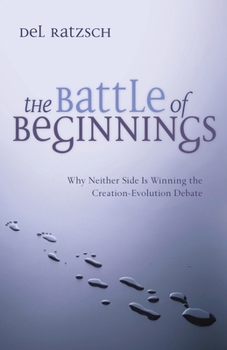The Battle of Beginnings: Why Neither Side Is Winning the Creation-Evolution Debate
Select Format
Select Condition 
Book Overview
Creation versus evolution. The debate is growing louder and hotter--whether in lecture halls or in between the pages of bestselling books. But neither side seems to be winning. Why?
In The Battle of Beginnings Del Ratzsch examines the history of the debate and critiques the entrenched positions that he argues merely impede progress toward the truth. Dissatisfied with both creationist fallacies and materialist misconstruals, he seeks to lay the groundwork for more fruitful dialogue.
In considerable detail Ratzsch looks at the history and development of Darwin's theory and common creationist misunderstandings of evolution. He then moves on to examine the history and development of creationist theory and pervasive evolutionist misunderstandings of it. He also discusses the nature of science and common creationist and evolutionist abuses as a prelude to showing why both sides have remained critical of theistic evolution.
Above all, Ratzsch argues that until philosophical confusion, logical missteps and various other snarls have been untangled, little real progress can be made in sorting out competing theories of life and its origin. With this book he challenges and equips all of us to think more clearly.





